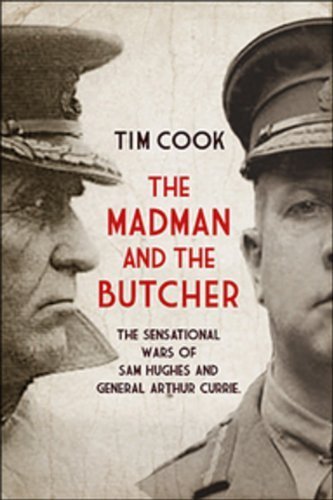What do you think?
Rate this book


Hardcover
First published September 1, 2010
Hughes's name still carried enough clout to ensure that a private railway car was donated to bear him home. As the train pulled out of Ottawa, a conductor came back to the Hughes car and asked the pale and nearly lifeless Sir Sam if the engineer should be told to travel slowly for his comfort. Hughes rose from his bed, looked the man square in the eyes, and barked, "No! Tell 'em to go like blazes!"